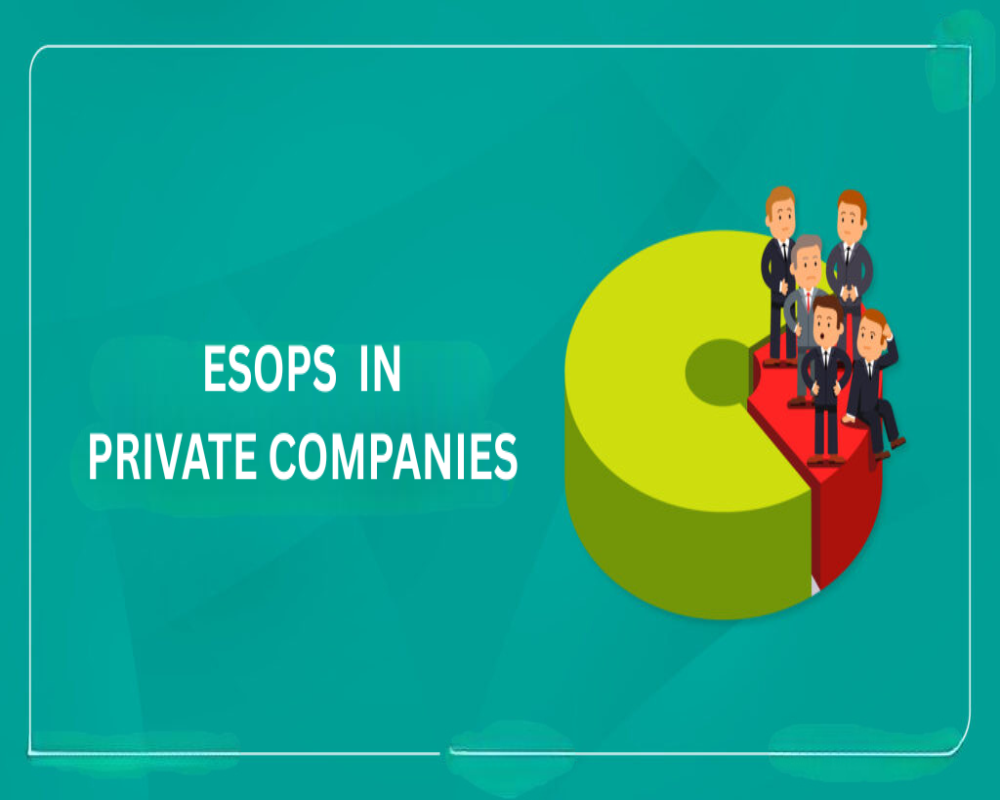How ESOPs Can Be Introduced in Private Companies
Introduction
Employee Stock Option Plans (ESOPs) are a strategic tool used by companies to attract, retain, and reward talent by offering them an ownership stake in the business. In private limited companies, ESOPs serve as an incentive to align employee interests with long-term corporate goals and enhance employee loyalty. While ESOPs are more common in startups and IT companies, any private company can implement them within the framework provided by the Companies Act, 2013. This article explains the process and considerations involved in introducing ESOPs in a private company.
Understanding ESOPs in the Corporate Context
ESOPs allow employees to purchase a certain number of shares in the company at a pre-determined price, after a specified vesting period. These shares are granted as options and become exercisable upon meeting defined conditions. In private companies, ESOPs are governed by Section 62(1)(b) of the Companies Act, 2013 and related rules.
Eligibility for ESOPs
ESOPs can be granted to:
- Permanent employees of the company or its subsidiaries
- Directors (except independent directors)
- Employees or directors of holding or subsidiary companies
However, ESOPs cannot be granted to promoters or members of the promoter group, and to directors holding more than 10% equity unless the company is a startup as recognized by DPIIT.
Amending the Articles of Association
Before introducing ESOPs, the company must ensure that its Articles of Association (AOA) contain a provision enabling the issue of stock options. If such a provision is absent, the company must first alter the AOA by passing a special resolution in a general meeting.
Board and Shareholders’ Approval
The process begins with a board meeting where the ESOP scheme is drafted and approved. The board then calls a general meeting of shareholders to pass a special resolution under Section 62(1)(b) to authorize the issue of shares under an ESOP. This resolution must include key details such as:
- Number of options
- Exercise price and period
- Vesting schedule
- Lock-in period and conditions
Drafting the ESOP Scheme
The ESOP scheme is a formal document outlining the terms and conditions of the plan. It includes:
- Eligibility criteria
- Number of options granted
- Exercise price and procedure
- Vesting period and schedule
- Rights and restrictions on shares
The scheme must be transparent, legally compliant, and tailored to the company’s goals.
Grant and Vesting of Options
Once the scheme is approved, the board can grant stock options to eligible employees. The options do not become shares immediately. They vest over time, typically in tranches, and only after the vesting period can employees exercise their options to convert them into equity.
Issuance and Allotment of Shares
Upon exercise of the vested options, the company allots shares to the employee. This requires:
- Receipt of the exercise price from the employee
- Allotment of shares in a board meeting
- Filing of Form PAS-3 (Return of Allotment) with the Registrar of Companies within 15 days
The employee becomes a shareholder and is issued a share certificate accordingly.
Maintaining ESOP Registers
The company must maintain proper records of options granted, vested, exercised, and lapsed. These details must be updated in the Register of Employee Stock Options, which is a part of the company’s statutory books and may be inspected during audits or due diligence processes.
Taxation and Regulatory Compliance
Employees are taxed at the time of exercising the options and again at the time of sale of shares. The company must ensure compliance with:
- TDS obligations
- Fair valuation of shares
- Filing obligations under the Companies Act and Income Tax Act
For startups, certain tax exemptions may apply under DPIIT-recognized status.
Conclusion
Introducing ESOPs in a private company involves legal approvals, careful structuring, and robust compliance practices. When designed well, ESOPs serve as a powerful mechanism to reward employees, boost performance, and build a long-term ownership culture. For private companies, particularly startups and growth-driven ventures, ESOPs can play a crucial role in attracting top talent and creating value through shared success.
Hashtags
#ESOP #EmployeeOwnership #PrivateCompanies #BusinessGrowth #EmployeeBenefits #EquityCompensation #WorkplaceCulture #FinancialIncentives #EmployeeEngagement #OwnershipCulture #BusinessStrategy #SuccessionPlanning #MotivatedWorkforce #CompanySuccess #TeamEmpowerment #ProfitSharing #WorkplaceInnovation #EmployeeRetention #CorporateGovernance #FutureOfWork


0 Comments